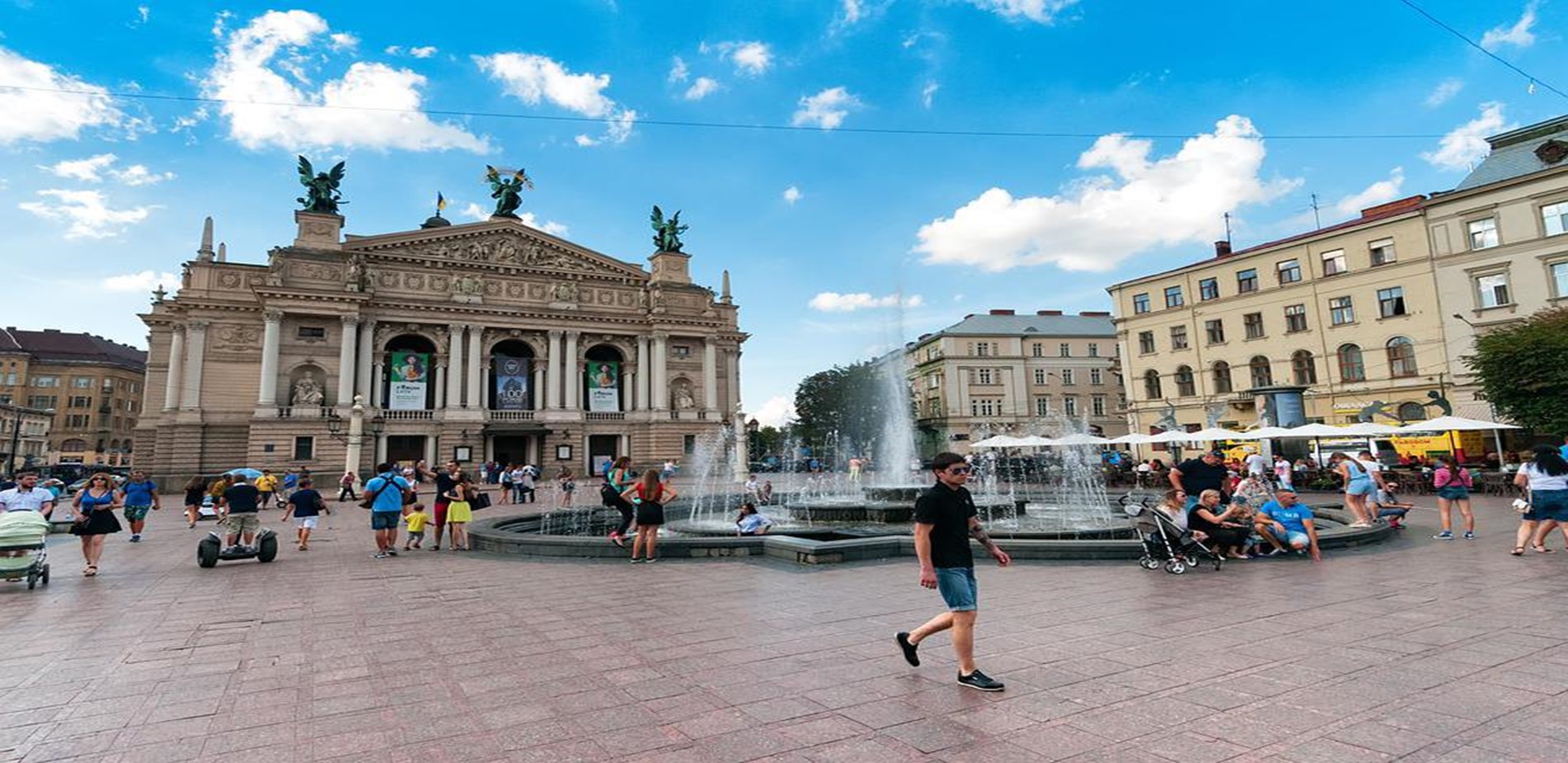Ukraine's Best Chance to Stop the Invasion
Kas Kalba recalls his visits to Ukraine and history's lessons

It has been impossible recently not to recall my trips to Ukraine during the 1990s and the 2000s. They were mainly to work on four consulting gigs, as I refer to them. The clients were Eutelsat, SATURN (a military R&D center), the World Bank and UMC, then Ukraine's largest mobile operator. All the cases were eye-opening. Of the four, helping Eutelsat secure landing rights was the easiest in retrospect, though by no means straight-forward. After some months, Eutelsat's proposed satellite station was approved by the government.
In contrast, advising SATURN pro bono on selling its defense technology to the West during the early nineties was a steep climb. Like other state entities, SATURN's managers saw the world in top-down terms. They received purchase orders from Gosplan and expected these to be replaced from the West, the new "Gos." There was no sense of the entrepreneurial resolve that was called for. Only during a visit to western Ukraine did I find such a sixth sense, all because this part of Ukraine had lived less time under the Soviet system.
My associate, Dr. Wes Vivian, who previously co-led an R&D firm in Michigan and also served in the U.S. Congress, assured me SATURN's technology was good. But also that it was not built to western technical standards. And I could see that a number of product redesigns were needed. The main lesson I learned was how the Soviet Union depended on Ukraine's technology, including Dnipro-area Zenit rockets (used for lifts to the Space Station) and R-36 missiles, Kyiv's Antonov cargo airplanes, and rear-engine mini cars from Zaporizhzhia.
In fact, only recently under President Zelensky has Ukraine fully stopped supplying Russia with military technology, another reason for the invasion. And, yes, China is now Ukraine's main weapons buyer and largest trading partner, edging out the next two (Germany and Poland) combined. This is overlooked in most portrayals of China's position on Putin's war, with little attention also going to Ukraine's role as the world's largest source of neon gas, critical in making semiconductor chips. Ukraine produces tech and software, not just corn, wheat and sunflowers.
As for the World Bank, my key task was to set up a meeting with Ukraine's Communications Minister at a gathering in Yalta. The Minister's go-through (named "key holder" in Ukrainian) blocked this until the last minute, when we learned there was no plan to privatize the state phone company. As a first step though, 49% of Ukrtelecom's mobile service business was sold to a group of European operators. The latter then hired our team, led by John Kaufman, to help instill a competitive culture. Regrettably, UMC did not follow our advice and soon lost its lead position.
My work in Ukraine was mixed with dinners with the National Security Council, a chance encounter with then President Viktor Yushchenko, and a performance at Lviv's opera (pictured in above photo), where my mother sang 50 years earlier. Perhaps the most memorable moment was with a young woman I ran into at a Kyiv office I was visiting. As I tried to Xerox a document, we started talking about Russians, whom I had been raised to be suspicious of, a fear that only grew when I ended up in a jail two hours into my first visit to Moscow.
Catching my drift, she offered, "It is not the Russian people. They suffered as much as we have. It's the leaders in Moscow." To which I did not respond as consultants are supposed to, pointing out a wrinkle in the argument or an example of its validity. Mum. And I recall mulling over her words on the trip home. In the end, they helped me have Russian friends in the years since. That said, I now re-mull these words when I hear of Russian military atrocities in Mariupol, Kharkiv and elsewhere. How to reconcile horror with humanity?
To do that, I suspect, will take a joint effort of the Ukrainian and Russian people, similar to the one they pursued before the breakup of the Soviet Union. Absent their respective support of independence, the Soviet Union would not have collapsed, despite its mismanagement of the Chernobyl disaster and its Afghanistan debacle. Only the free Russia that emerged was not helped by western promotion of crash capitalism, which led to state-sponsored crash oligarchy instead.
Hopefully, this time the west will recognize the need for hard work over crash solutions. This calls for unwavering support of Ukraine during Putin's invasion followed by a new Marshall Plan. And, hopefully, President Zelensky's leadership will prevail like it did in the comedy series Servant of the People about a school teacher who becomes Ukraine's President.
 View Printer Friendly Version
View Printer Friendly Version